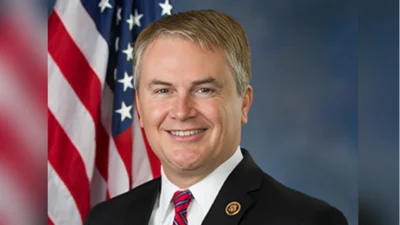Dear Secretary Leavitt:
We are writing to follow up on our June 19, 2008 letter, in which we expressed concerns regarding the lack of transparency and opportunity for public input in the process of approving waivers under Medicaid and the State Children’s Health Insurance Program (SCHIP). Our letter followed a Government Accountability Office (GAO) report regarding the lack of public input in the waiver process.
In our June letter, we asked you to inform us about current policies in your department and at the Centers for Medicare & Medicaid Services (CMS) regarding the waiver approval process, as well as the steps you are taking to improve the process. Your lack of a response is symptomatic of the very issues we raised regarding the lack of transparency in the waiver approval process.
Recent developments in Rhode Island reinforce our concerns. On July 29, Rhode Island released its proposal for a federal Medicaid waiver. This proposal raises a number of serious concerns for us. Our main concerns with the proposal center around its impact on beneficiaries, the state, and the federal government. Furthermore, we know certain elements of the Medicaid program cannot be waived under any circumstances. Here are some of our specific concerns:
• Rhode Island is asking the federal government for permission to convert its current Medicaid program from an entitlement to a block grant. The state is requesting that the federal government give the state a set amount of federal funds each year, regardless of the amount Rhode Island contributes to Medicaid. This federal pot of money would be capped, thereby limiting how much the federal government will contribute for Medicaid spending. Other provisions in the waiver proposal indicate that state funding will not increase, so the total funding for Medicaid will be less than the amount the state forecasts it needs in the waiver. A funding structure like the one in the waiver proposal, including the cap on federal funds, puts beneficiaries, providers, and the entire state at risk should health costs or enrollment rise faster than expected. If this happens, the state would be forced to cut enrollment, benefits, provider payments, or meet the shortfall with state funds. No block grant like this has ever been allowed under Medicaid; indeed we are not certain there is authority in the Medicaid statute to permit such a block grant even under a waiver.
• Rhode Island is seeking complete and unprecedented flexibility to make changes in eligibility and services for many beneficiaries without any federal oversight.
To deal with the risks of a cap on federal funds, the state wants the authority to establish waiting lists that could force some beneficiaries (“optional populations") to wait for eligibility and services. Waiting lists pose significant access issues, especially for the Medicaid population, and in the past have been determined to violate the Olmstead decision. Under Rhode Island’s proposal, many children and parents could have to wait for a spot to open up before becoming eligible to receive health care, even when they have serious illnesses and need timely access to care. The state also wants to create waiting lists for long-term care services, which could affect many seniors and people with disabilities. The proposal is not clear as to whether all children would continue to receive EPSDT services.
• Rhode Island is seeking authority to charge copayments in excess of levels established under the Deficit Reduction Act of 2005 (DRA), including prescription copayments for all children - even those with incomes below the poverty line. The waiver proposal provides that the state "reserve[s] its authority to impose new or revise existing cost-sharing requirements to mandatory populations" without further federal review. There is substantial research that shows that even modest cost-sharing causes low-income people to forego care. In the DRA, Congress gave states additional flexibility on cost-sharing, but maintained limits to protect beneficiaries from losing access. We see no reason to allow states to exceed the flexibility related to cost-sharing they have pursuant to the DRA, even through a waiver.
• Rhode Island's proposal would shift a much larger share of Medicaid costs to the federal government, and the federal share would grow over time. Under the waiver proposal, the state is proposing a maintenance of expenditure (MOE) requirement in lieu of Medicaid's current matching structure. The state's MOE would be determined by applying a fixed percentage (23 percent) to the state's general fund expenditures each year. If approved as is, it appears that the federal government would be responsible for a much greater share of the total Medicaid budget in Rhode Island in FY09. Because the state would shift from a match to an MOE tied to state general expenditures, which grow more slowly over time than Medicaid spending, the federal share of Medicaid spending would go up each year.
At a time when federal expenditures on health care are rising rapidly, Rhode Island’s proposal would take us in the wrong direction by eroding the federal-state partnership that is at the heart of the current financing structure for Medicaid. A balance of federal and state interests needs to be reached when structuring Medicaid financing.
Upon reviewing the waiver proposal, we believe you will agree with our concerns and recognize the serious potential for harm to Rhode Island and its Medicaid beneficiaries. We also know you will pay special attention to the scope of your authority to approve some of the changes Rhode Island is seeking. Finally, given our concerns about a transparent waiver process, we expect that you will provide an opportunity for input as you review this proposal, and that you will allow enough time for a deliberative process.
We request that your staff brief our staff on these issues. Please contact David Schwartz for Senator Baucus at 202-224-4515 or Jocelyn Moore for Senator Rockefeller at 202- 224-6472 no later than Aug. 29, 2008 to arrange this briefing.
Sincerely,
Max Baucus
Chairman Senate Finance Committee
John D. Rockefeller IV Chairman
Subcommittee on Health Care, Senate Finance Committee
Source: Ranking Member’s News









